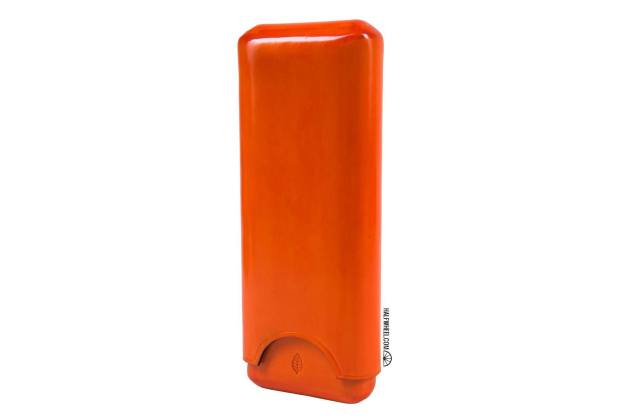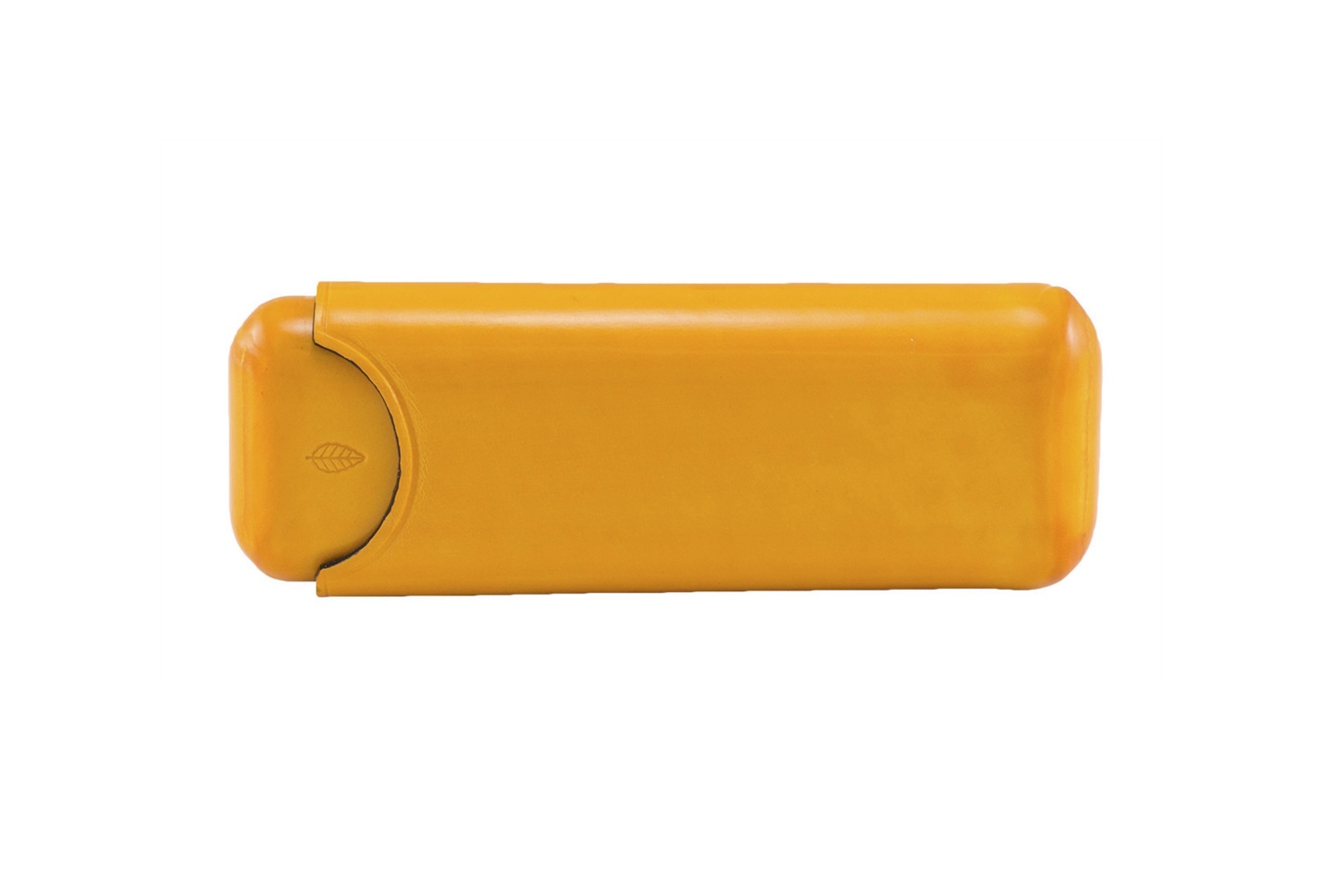When Warped first showed off its line of cigar cases, I was impressed.
There were a lot of claims regarding the seamless construction, low-quantity production and leather choices—but what impressed me the most was that an American-based company, and a relatively young one at that, was willing to create modern and bold designs for the old world of cigar cases. Sure, you would expect this ambitious attempt at style and execution from Davidoff or S.T. Dupont, but not from the company previously best known for a cigar called Anubis.
At a minimum of $139, the Series I cigar cases also manage to find their way into a price range that we normally reserve for the aforementioned European companies and not for a company who, until a few months ago, was essentially unheard of outside of a few cigar forums.
Kyle Gellis started Warped Cigars in 2008 while attending college. Through El Titan de Bronze, he created three cigar lines, which were sold through his own online store. A few years later, Gellis disappeared from the cigar world. He told us at the IPCPR Convention & Trade Show in July that he needed to take some time to focus on finishing college making the regular trips to Miami to check on cigar production challenging.
In late 2012, Gellis returned with the Warped Cigar Review Notebook and a lot of hints about getting Warped back into the cigar business.
It’s probably best to look at Warped as two different companies. The circa-2009 Warped (Warped 1.0) was a much different company with different cigars, different branding and a different goal. Outside of Gellis and the company’s name, little seems to be the same. Yes, there are still cigars being made at El Titan de Bronze, although they are no blends, but Warped (2.0) has radically updated branding, a range of cigars, a full offering of accessories and is now selling to retailers, worldwide.
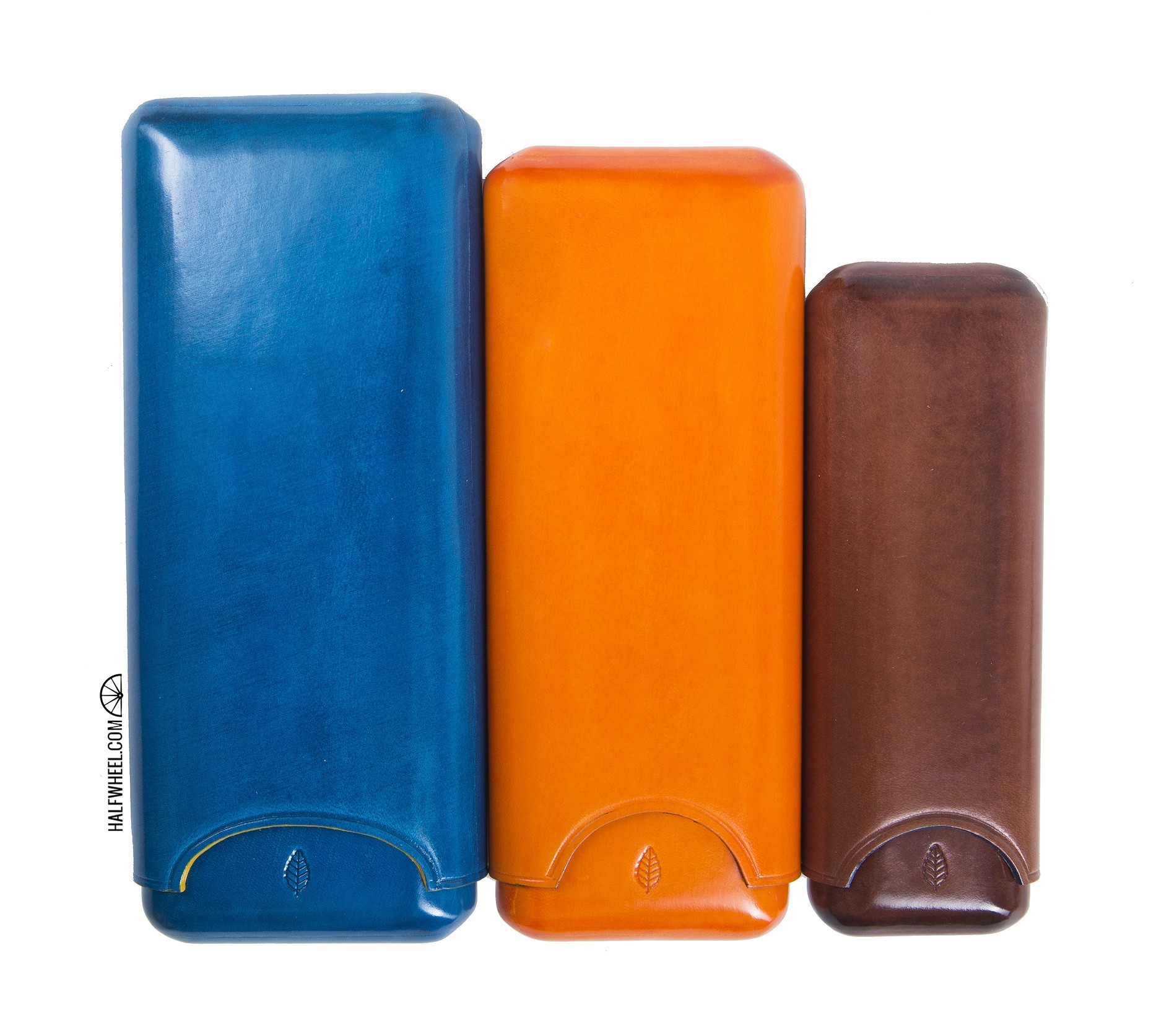
There are three cases currently offered as part of Series I. Each case is made in Spain and uses a “hyper-fuse” method that allows for the cases to be made without stitching creating a visually seamless look. The line begins with Series I Tortoise ($139), a classic brown leather case capable of holding two robustos. For those wanting a more modern flair, there are two three-cigar options: Blue Ring ($159) features a teal-colored leather with yellow accents and can accommodate cigars as large as 6 1/4 x 52, while Fire Belly ($149) features a traffic-cone orange and is capable of holding three 6 x 48-sized cigars.
All three cases feature a light cream-colored interior and are packaged in a detailed and heavy presentation box.
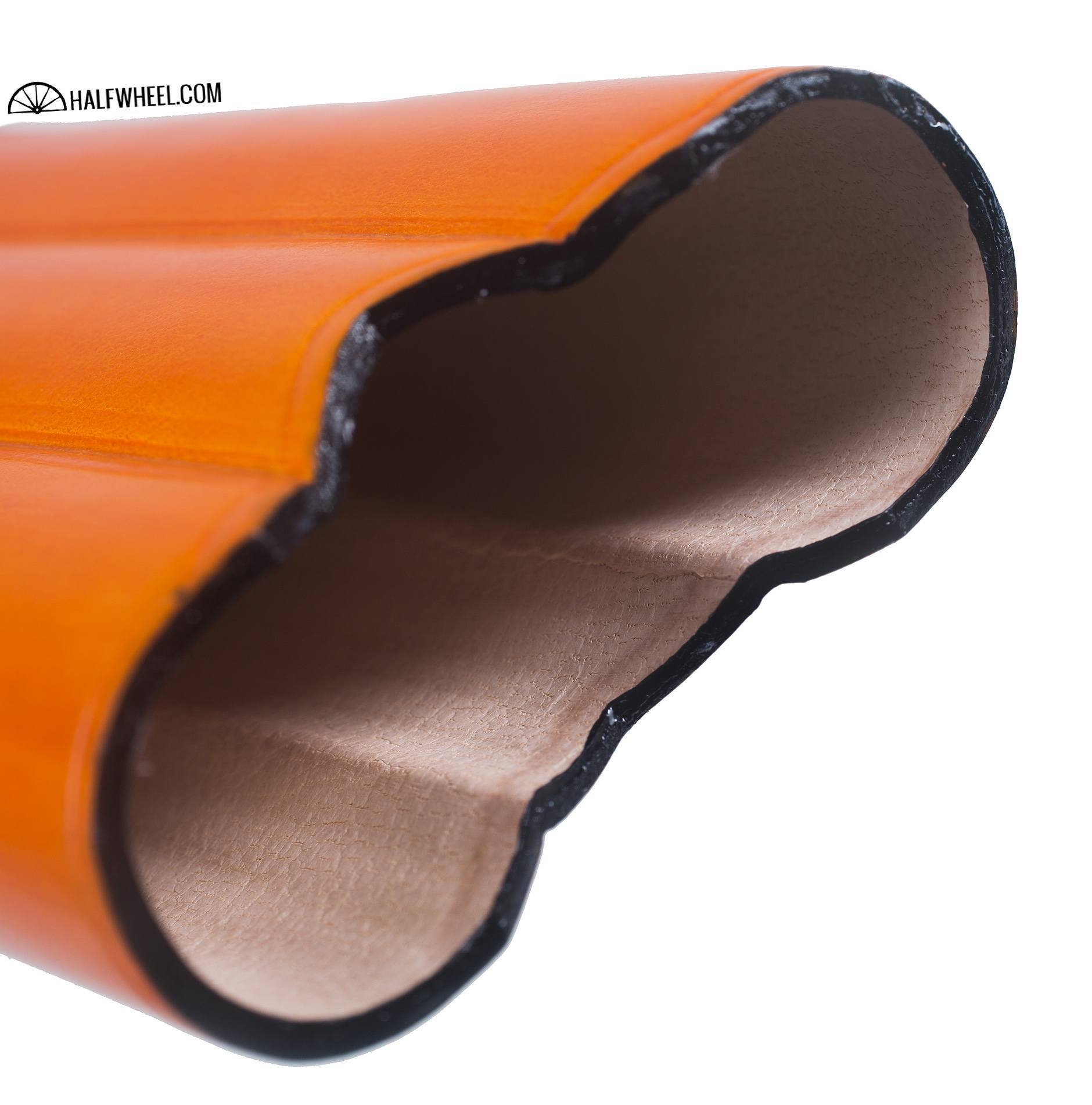
Fortunately, there’s very little leather aroma inside the cases even upon shipping, although there was enough that I let the Fire Belly case used for this review air out for two days before I started using it. The bottom part easily glides away from the top shell and I have not had any trouble with the two parts sticking together, something that has plagued cheaper cases I’ve used over the years.
The case offers minimum protection for dropping cigars, which is fine as far as I’m concerned. If you are spending over $100 on on a cigar case that holds no more than three cigars, you probably are not going to be treating it like a Pelican case. That being said, the seal on the Warped Series I seems to be good, obviously not airtight, but firm enough that a small Boveda pack shoved in the bottom retained humidity throughout the week—far longer than I would ever advise storing a cigar in the case.
While not showing stitching is a great aesthetic feature, I’m much more impressed with the firmness of the construction. The case is sturdy enough that it almost seems like it’s leather on top of a harder shell, a far cry from most of the all leather cases I’ve used. Despite the 6 x 48 recommendation, I’ve been able to fit cigars as wide as 52 ring gauge in the case—or 54 ring gauge box-pressed—without it being a concern. That being said, you cannot fit three cigars of that extra width in the case as there simply is not enough volume to go around. As for the six-inch length dimension, that’s simply if you want the case to close all the way—three lanceros fit just fine as far as I’m concerned.
Given that most people purchasing a Warped Series I case are likely doing it because of the appearance, I wondered how the Fire Belly and Blue Ring cases would look after some heavy use. As for the Fire Belly, it’s okay. There are some noticeable wear marks, but I’ve tested the case to the point of carelessness largely to see what would happen. A friend knocked over a beer on a table and the top of the case made contact with the stout before I could pick it up, but fortunately it wiped off easily from the Warped case without any stains. It’s been rained on, thrown in a bag, inevitably put in a pocket with keys and a lighter—and some of that shows.
If you are either reckless or careless and still concerned about vanity, I would recommend the Tortoise. There’s no question the natural leather colors age gracefully and some of the soft leather cases I’ve had over the years probably look better with wear than they did out of the box—not so much the case with the Fire Belly. I haven’t taken the case to a tanner, a person who works on leather by trade, to see if the damage I’ve done is removable—but I’m not concerned. As far as my uses are concerned, this is function with style, not an art piece that can occasionally be used with white gloves.
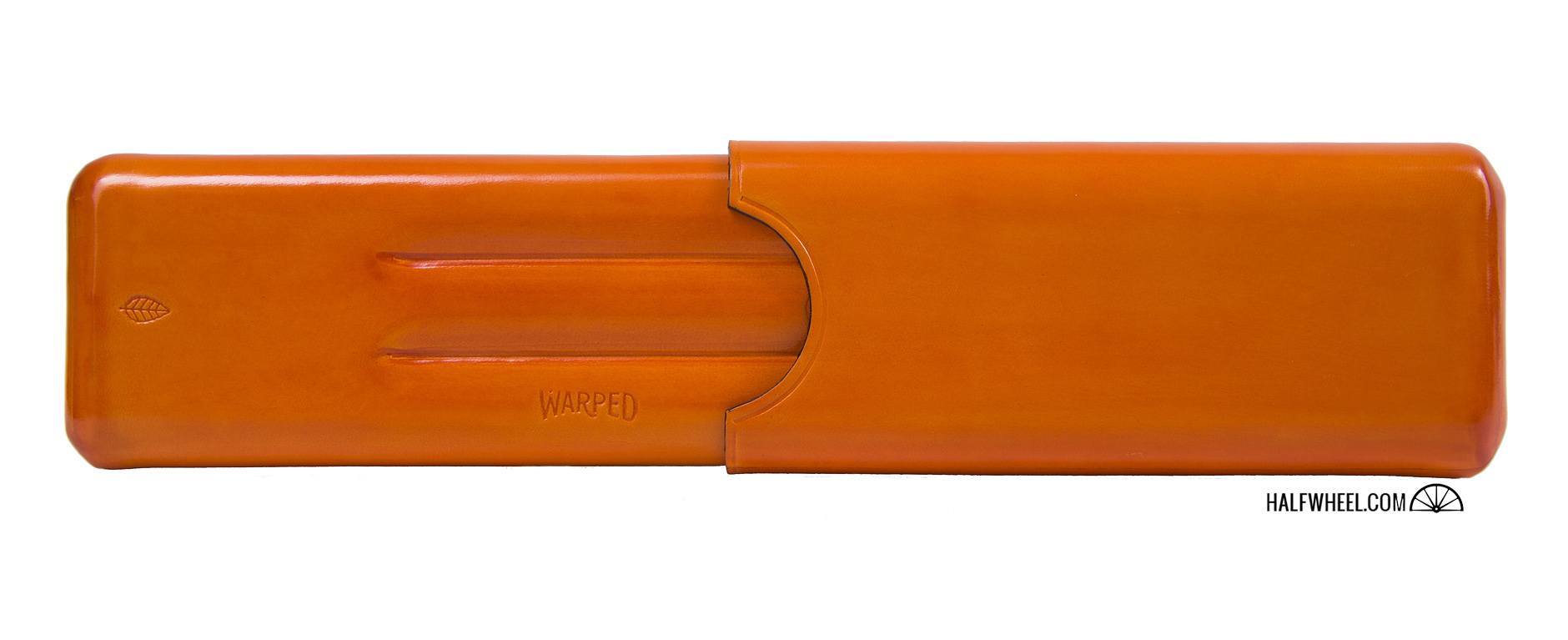
There are lots of cigar cases on the market. Prometheus makes cases in pretty classic styles with similar capacity models ranging from $100-125. Brizard and Tatuaje both make three-cigar cases that have leather shells and cedar-lined insides with room for individual cigars, both companies cases retail for around $125. XIKAR also makes cedar-lined cases, although not individually-partitioned cases, with pricing from $50-$90. For $130-195, Davidoff has a new line of red and white leather cigar cases that are probably the closest options. And there is Andre Garcia, the company I once thought of when the word “cigar case” came to mind, but it seems like the availability in the U.S. right now can be described best as “clearance sale.”
As for what sets the Warped Series I cases apart, it’s two things. One, if you want cases in teal or this rendition of orange, you are going to have to look at the French-made Fallon cases, which range in price between $500-2,300. In addition, there is only one retailer—Nat Sherman—listed on the company’s website in the U.S.
Two, all of the similarly-priced options feature a ton of distractions on the outside of the cases. Davidoff has small branding, but their seams running down the edges. The case from Prometheus is smooth on the sides, but features a metal logo that protrudes from the middle of the case. As for Warped—if the cases closes all the way there is a tiny leaf-logo on the bottom of one side of the case—easy enough to miss.
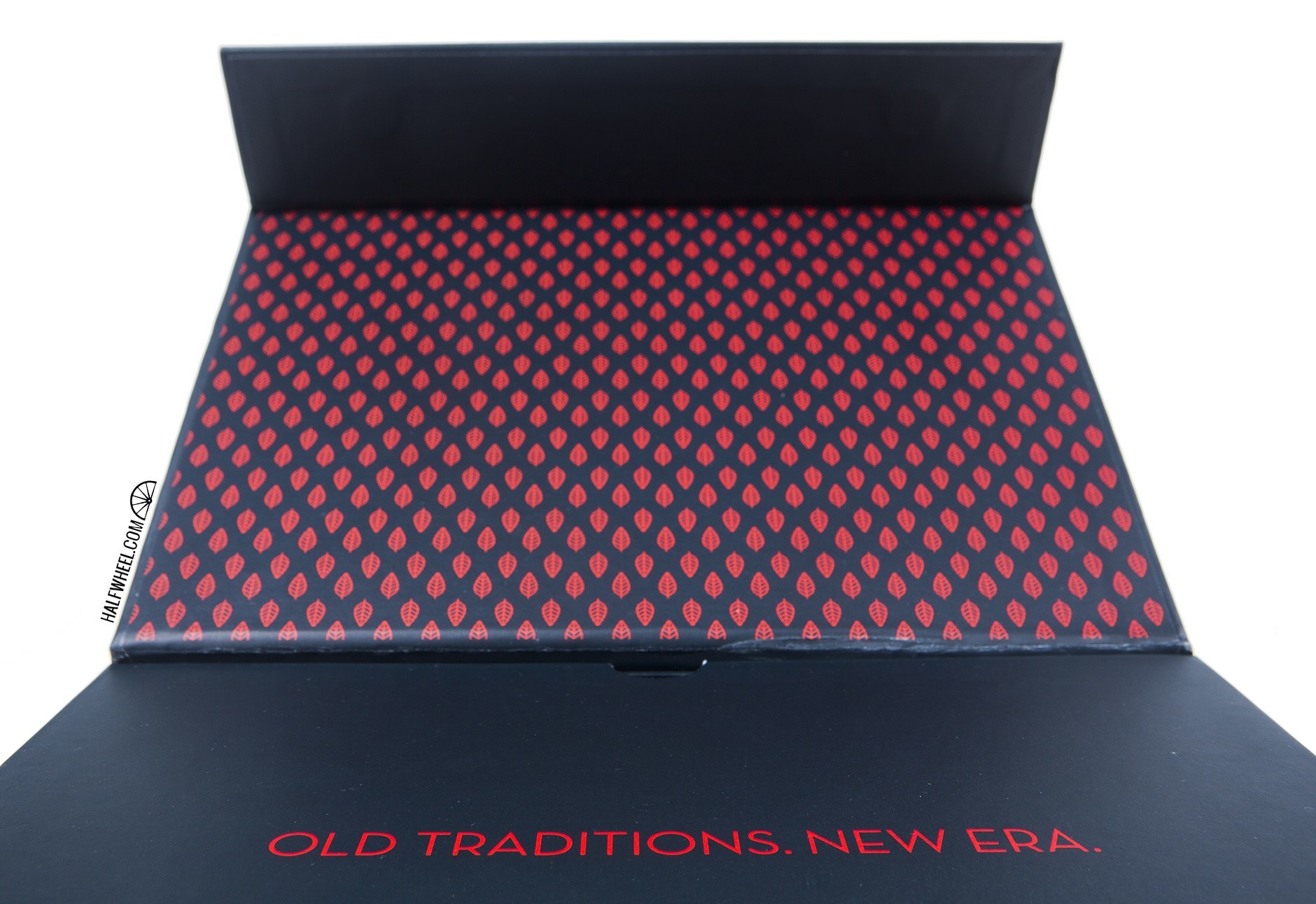
If you are in the market for a cigar case, your choice—as it so often does with accessories—will come down to two things: personal preference and price. The cigar case market is not that crowded and it seems that the ones that are still left, outside of the no-name economically-priced options, are well-made. Given that most of the cases hold two or three cigars, your decision will likely come down to appearance and price. If Warped’s styling is what you want, purchasing a Series I cigar case is something I’d recommend time and time again. The claims about selective leather and detailed construction are all true. It’s a well thought out design that is executed wonderfully—a nice breadth of fresh air in a category that is oftentimes overly dull.

